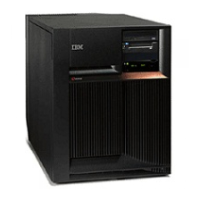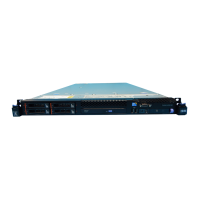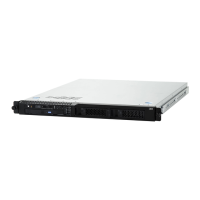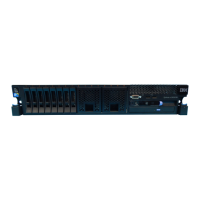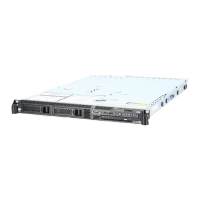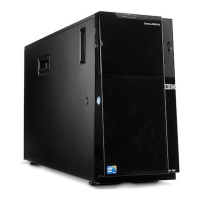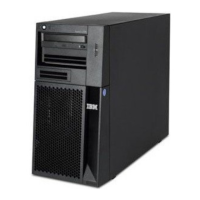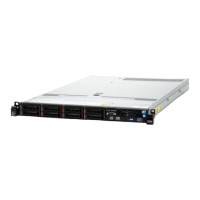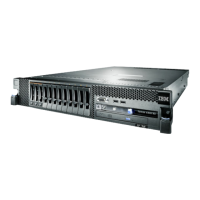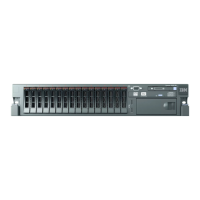If you have location information (card or device position), go to “Locations and
Addresses” on page 705 and find the location diagram for the system model
number. Each diagram has a table that indicates how to get part number
information and which Removal and Installation/Recovery procedure to
perform.
If you only have address information (Direct Select Address and Unit Address),
find the address diagram for the system model number. Use the diagram to
find the location. Then go back to “Locations and Addresses” on page 705 and
find the location diagram for the system model number. Each diagram has a
table that indicates how to get part number information and which Removal
and Installation/Recovery procedure to perform.
This ends the procedure.
3. Do you know the Frame ID?
No Yes
↓ Go to step 5 on page 707 of this procedure.
4. Use the following steps in ″Hardware Service Manager″ in SST/DST to locate
which tower the failing item is in, using the bus number given in the direct
select address.
a. Go to SST. If SST is not available, go to DST.
b. Select ″Start a service tool″.
c. Select ″Hardware service manager″.
d. Select ″Logical hardware resources″.
e. Select ″System bus resources″.
f. Change the ″System bus or buses to work with″ field to the decimal equivalent
of the Hex bus address (this is the first four characters of the Direct Select
Address). Press enter.
g. Select the Associated packaging resources (option 8) for any IOP that is
displayed.
h. The Frame ID is indicated in the ″Frame ID″ column.
Locations and Addresses
706
iSeries Model 830, 840, SB2, and SB3 Problem Analysis, Repair and Parts V5R1
